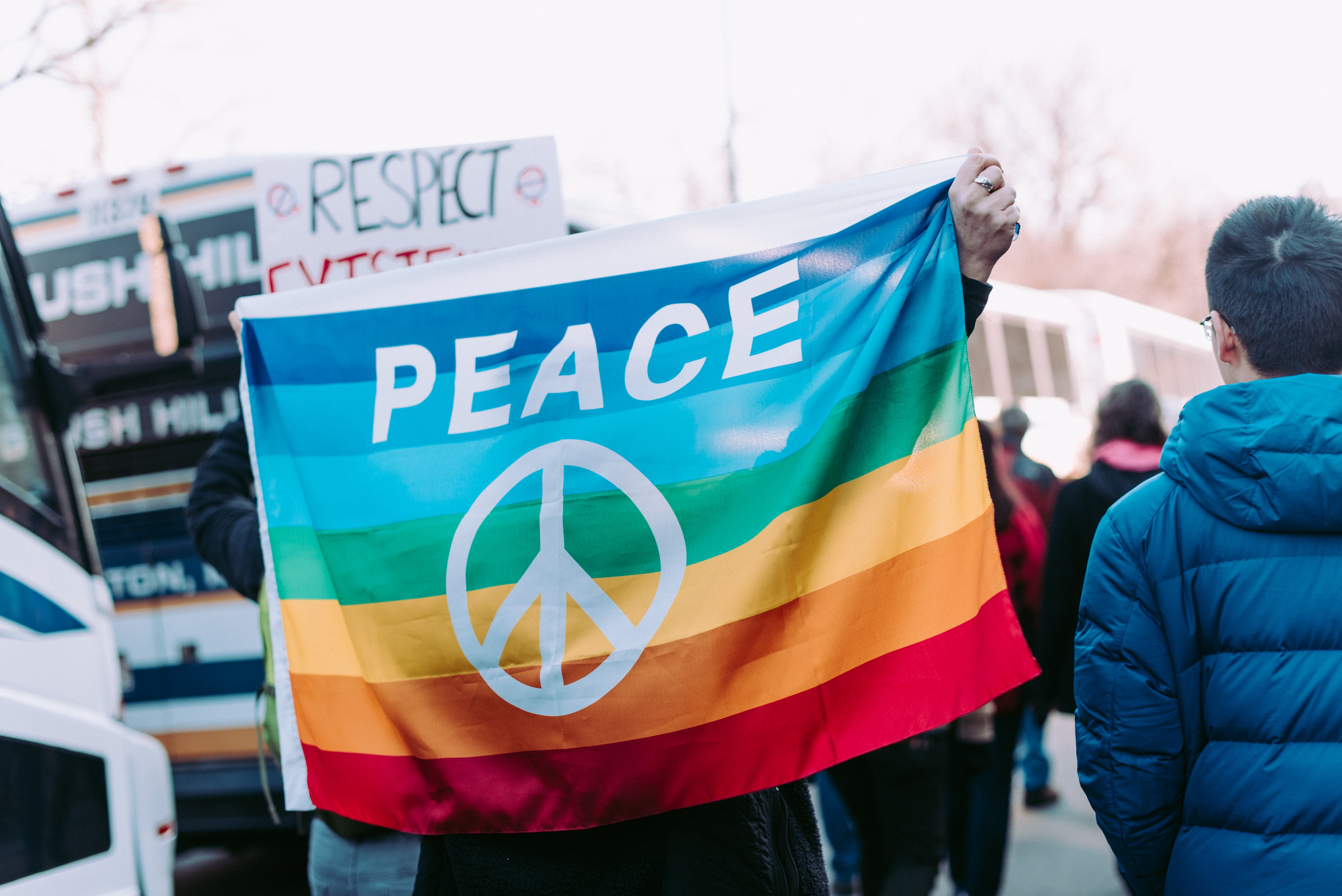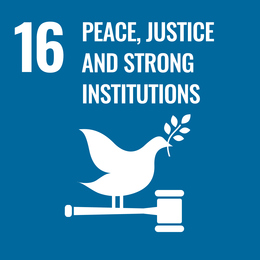SDG # 16 - Peace, Justice, and Strong Institutions
Imagine if...
Imagine if...

Promote peaceful and inclusive societies for sustainable development, provide access to justice for all and build effective, accountable and inclusive institutions at all levels.
It’s an undisputed fact that violence, persecution, and armed conflict destroy entire communities. In conflict-ridden, unstable regions, it is common for people to experience sexual abuse, crime, exploitation, and trafficking, often against those who are most vulnerable like women and children unprotected by laws. Effective governance by strong,...
Raise awareness

Nonviolent Peaceforce (NP) is a global civilian protection agency (NGO) based in humanitarian and international human rights law. Our mission is to protect civilians in violent conflicts through unarmed strategies, build peace side by side with local communities, and advocate for the wider adoption of these approaches to safeguard human lives and dignity. NP envisions a worldwide culture of peace in which conflicts within and between communities and countries are managed through nonviolent means. We are guided by principles of nonviolence, non-partisanship, primacy of local actors, and civilian-to-civilian action.
The Center for Arms Control and Non-Proliferation seeks to reduce nuclear weapons arsenals, halt the spread of nuclear weapons, and minimize the risk of war by educating the public and policy makers. The Center for Arms Control and Non-Proliferation is a national non-partisan non-profit dedicated to enhancing peace and security through expert policy analysis and thought-provoking research. Since 1980, the Center's expertise on reducing the threats of war and nuclear weapons has been sought by the media and policymakers, and supported by the tax-deductible contributions of foundations and individuals. The Center is a Washington, D.C.-based 501(c)(3) organization, and its affiliated 501(c)(4) organization is the Council for a Livable World, founded in 1962 by Leo Szilard. The Council's mission is to increase peace and security and to reduce the threat of nuclear weapons by representing our members in Washington and electing congressional candidates who support our goals.
The Peace Development Fund works to build the capacity of community-based organizations through grants, training and other resources as partners in the human rights and social justice movements. As a public foundation, we nourish, foster and encourage the diverse, self-sustaining and economically viable communities that are essential to building a peaceful, just and equitable world.

EJI is committed to ending mass incarceration and excessive punishment in the United States, to challenging racial and economic injustice, and to protecting basic human rights for the most vulnerable people in American society. EJI provides legal representation to people who have been illegally convicted, unfairly sentenced, or abused in state jails and prisons. We challenge the death penalty and excessive punishment and we provide re-entry assistance to formerly incarcerated people. EJI works with communities that have been marginalized by poverty and discouraged by unequal treatment. We are committed to changing the narrative about race in America. In 2018, EJI plans to build a national memorial to victims of lynching and open a museum that explores African American history from enslavement to mass incarceration.
PolicyLink is a national research and action institute advancing economic and social equity. PolicyLink work is guided by the belief that those closest to the nation's challenges are central to the search for solutions. With local and national partners, PolicyLink is spotlighting promising practices, supporting advocacy campaigns, and helping to bridge the traditional divide between local communities and policymaking at the local, regional, state, and national levels. By developing and implementing multifaceted strategies, PolicyLink seeks to ensure that everyone- including low-income communities of color- can contribute to and benefit from local and regional growth and development.
The Sustainable Development Goals (SDGs), also known as the Global Goals, were adopted by all United Nations Member States in 2015 as a universal call to action to end poverty, protect the planet, and ensure that all people enjoy peace and prosperity by 2030. The 17 SDGs are interconnected and integrated, and reaching these goals requires balancing...

Stage 1
Become a founding donor
Stage 2
Help build support
Stage 3
Join the final push
 SDG 10 - Reduced Inequalities
SDG 10 - Reduced Inequalities SDG 15 - Life on Land
SDG 15 - Life on Land SDG 3 - Good Health and Wellbeing
SDG 3 - Good Health and Wellbeing SDG 8 - Decent Work and Economic Growth
SDG 8 - Decent Work and Economic Growth SDG 9 - Industry, Innovation, and Infrastructure
SDG 9 - Industry, Innovation, and Infrastructure SDG 11 - Sustainable Cities and Communities
SDG 11 - Sustainable Cities and Communities SDG 17 - Partnership for the Goals
SDG 17 - Partnership for the Goals Climate
Climate SDG 5 - Gender Equality
SDG 5 - Gender Equality SDG 1 - No More Poverty
SDG 1 - No More Poverty SDG 6 - Clean Water and Sanitation
SDG 6 - Clean Water and Sanitation SDG 4 - Quality Education
SDG 4 - Quality Education SDG 2 - Zero Hunger
SDG 2 - Zero Hunger Bay Area Poverty
Bay Area Poverty SDG 13 - Climate Action
SDG 13 - Climate Action SDG 7 - Affordable and Clean Energy
SDG 7 - Affordable and Clean Energy SDG 12 - Responsible Consumption and Production
SDG 12 - Responsible Consumption and Production SDG 14 - Life Below Water
SDG 14 - Life Below Water Conservation
Conservation New York Poverty
New York Poverty U.S. Education
U.S. Education Global Poverty
Global Poverty